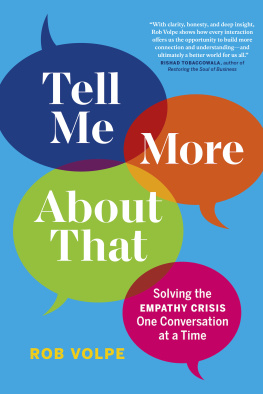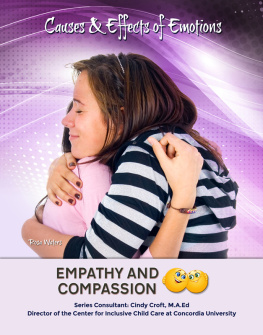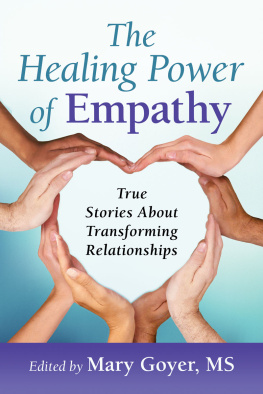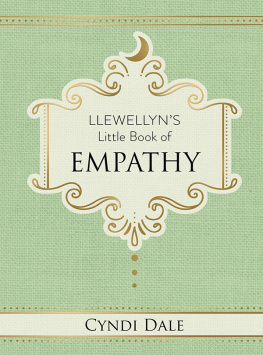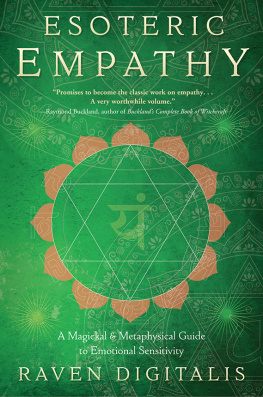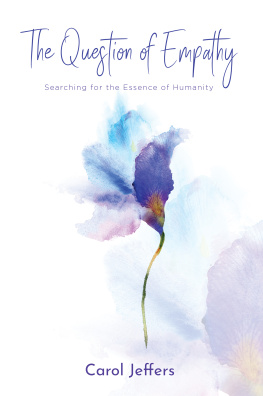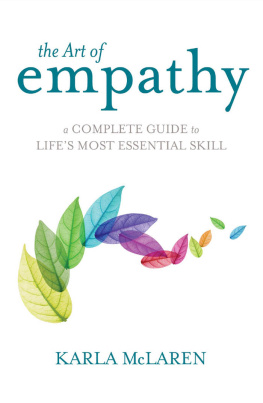Praise for Tell Me More About That
In Tell Me More About That, Rob Volpe illuminates not just the why, but the how, of empathy. With clarity, honesty, and deep insight, Rob shows how every interaction offers us the opportunity to build more connection and understandingand ultimately a better world for us all.
rishad tobaccowala, author of Restoring the Soul of Business: Staying Human in the Age of Data
Tell Me More About That is a must-read for anyone who cares about how we live and lead into the future. Rob Volpe has poured his wisdom, heart, vulnerability, and experience walking in other peoples shoes into this thoughtful, funny, informative book. Theres no one better to be our guide for seeing more of ourselves in others and why we should do it than Rob and his empathy superpower.
andrew blotky, founder and CEO , Azure Leadership Group; author of Honestly Speaking: How the Way We Communicate Transforms Leadership, Love, and Life
Empathy has become the new catchphrase of leadership. However, knowing what it really is and applying it to become a spectacular leader that your talent becomes deeply connected to is rare. Rob Volpe is a master and his 5 Steps to Empathy brilliantly lay out exactly how to do just that. This book is a must-read-and-apply for you to lead in the new world of business!
dov baron, The Worlds Leading Meaning Authority, bestselling author, Top 30 Global Leadership Guru, and host of the Leadership and Loyalty podcast; DovBaron.com
In a world dominated by digital technology, the success of a brand, venture, or leader isnt determined by the quality of their product or the efficiency of their operations. To truly succeed and stand out from the crowd, you need to understand and respond to the needs, wants, and desires of your customers, employees, and colleagues. You need empathy. Rob Volpes Tell Me More About That guides the way.
mark achler, managing director, MATH Venture Partners; entrepreneurship and innovation lecturer, Northwestern Universitys Kellogg School of Management
3
Turning
Perspective Around
Its not what you look at that matters, its what you see.
Henry David Thoreau
M y husband, Charles, and I often walk down the street together, side by side, and we will comment to one another about what we see. I usually note the buildings, stores, and signs, while he notices the people. He picks up on what they are wearing, whos cute, who we might want to avoid. Ill notice an ad for an exhibit we might want to check out or observe the pace of construction on a building if its on a well-worn route of ours. Even though we are together, walking in the same direction, what we each see is pretty different from the other. We have the same viewpoint, but our points of view are not identical.
And so it is with understanding perspective. Two people standing in the same spot and looking at the same vista will end up seeing completely different things. Through our eyes, our brains are both registering the same visuals, but our mind selects what we focus on. In some ways, we are listening with our eyes. And what we focus on is informed by our own biases and past experiences. Even though I talk with people for a living, I find it dizzying to focus on every person coming at me on a crowded street. I think thats why my eye wanders toward the inanimate objects that remain static, and it informs how I end up seeing the world around me. If Charles wants me to see what he sees, I have to look at whats in front of me differently. Similarly, if I hope to understand someone elses point of view, to have empathy with them, then Ill need to change my mental perspective.
In addition to seeing the world from someone elses viewpoint, I also love changing my physical perspective in order to see things differentlywhether thats getting down on the ground and looking at the world at the eye level of my cats, looking at the world upside down while in a yoga position, or observing the world from an airplane at thirty-five thousand feet. You see and understand things in a totally different way when you shift your perspective.
My favorite artists play with perspectiveTim Walkers photography that changes the scale of objects in remarkable ways; the subversive, satirical work of Banksy; or examining what happens after happily ever after in Stephen Sondheims Into the Woods. I remember the first time I saw Sondheims Sunday in the Park with George, and the second act begins with the song Its Hot Up Here, taking the audience into the point of view of the subjects in a painting, stuck in one position, forever. I thought this shift in perspective was absolutely brilliant, clever, and comical as well.
Unfortunately, what I had been finding in my early years of moderating is that we all can get locked into our perspectives, myself includedwhether its what we see walking down the street the way Charles and I do, or whether its on political issues, religious views, social injustice, or something as mundane as what food has to be on the table for Thanksgiving to truly be Thanksgiving. Ask that question of your friends and youll be surprised at the range of answers you get. Whats important to them may not be to you. It doesnt make it wrong; its just their point of view. Are you able to shift your perspective to see their point of view?
What Ive found to be dangerous is when people are so firmly rooted in one perspective that they arent able to take on the point of view of someone else. After Charles and I talk about what we are seeing on the streets, and hes noticed some incredible style or piece of clothing or makeup that he loves but Ive missed, I try to shift my view to see more of what hes seeing. I end up looking at the people more than I normally do. It takes a conscious effort to do that, however.
When I was a kid, I remember my parents would try to help me have perspective on a situation. To see something from the other side. I remember often hearing, Look at it from their perspective. That helped me as I started to develop the ability to put myself in the shoes of others, to understand where they were coming from. It helped me navigate both school and early work situations. And taking a different perspective also helps lift a worry or concern. When I receive bad news, I feel the weight of the bad news but try to see the other side in order to understand what led to the decision or event. After that, I look to find a bright side, mixing my perspective taking with coping skills, resilience, and a desire for optimism. That perspective shifting has become second nature for me, part of my superpower that helped cover the wounds I endured growing up. Being able to see a classmates perspective helped me get along with them and hopefully not get beaten up. But how I actually did this and the steps I took were unknown to me at the time.
While Ive always been inspired to be open to other perspectives, the person that turned me around and, unknowingly, pointed me on the path to identifying and understanding the 5 Steps to Empathy was a respondent from one of my most favorite projects ever.
The project was code-named Goldie, named after the actress Goldie Hawn, who, at the time, represented an ideal of aging well to my non-Boomer clients. We were hired to conduct an exploration into the life of aging Baby Boomers. Still fit and youthful in the mid-late aughts, Boomers were rewriting the rules for agingdetermined to remain active and vital and to contribute to society. The fact that Hawn might have had a little work done to help maintain her visual vitality might have been beside the point for the client team. Or perhaps that was the point, if you sought to create new food products to help Boomers maintain vitality; it could be the food equivalent of having a little work done.

